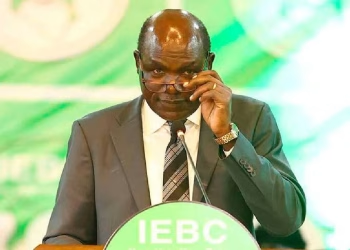While the clean energy sector, particularly green hydrogen, solar, wind, and battery manufacturing, continues to draw substantial foreign investment to Africa, the continent offers more than just renewable energy prospects. Rapid economic growth and a burgeoning youthful population are also significant factors driving investment. Here, Bird Story Agency explores the ten African countries that attracted the most foreign direct investment (FDI) in 2023.
The International Monetary Fund (IMF) projections for global economic performance in 2024 highlighted six African nations among the top ten fastest-growing economies worldwide, showcasing unprecedented economic opportunities on the continent. Such growth fosters increased demand for investment.
According to the OECD, Africa faces a sustainable financing gap of up to $1.6 trillion until 2030, which poses challenges for the implementation of both existing and new projects amid rising debts and economic dynamics. However, the continent’s abundant natural resources and a skilled workforce make it a magnet for global investors seeking to manufacture goods for both local and international markets.
With the African Continental Free Trade Area (AfCFTA) under development, investing in Africa presents an opportunity to secure a foothold in one of the world’s largest markets for goods and services.
A recent report from the UN Conference on Trade and Development revealed that while FDI inflows into Africa decreased by 3% to $53 billion in 2023—mirroring a global decline of 2%—the continent continues to experience significant growth in greenfield investments, particularly in the clean energy sector.
Here are the ten African countries that attracted the most foreign direct investment in 2023, according to the World Investment Report 2024:
- Egypt: Although FDI in Egypt fell from $11.4 billion in 2022 to $9.841 billion in 2023, the year saw significant investment announcements in green hydrogen. Egypt’s ambitious strategy aims to supply 5-8% of the global hydrogen market by 2040.
- South Africa: Facing inflationary pressures and ongoing electricity challenges, South Africa’s investments dropped sharply to $5.233 billion in 2023 from over $9.2 billion in 2022. Despite this downturn, it remains a leading investment destination on the continent.
- Ethiopia: Recognized by the IMF as the second fastest-growing economy in Africa with a growth rate of 6.2%, Ethiopia attracted $3.263 billion in 2023, slightly down from $3.6 billion in 2022. The recent opening of restricted sectors to foreign investors is expected to enhance inflows significantly.
- Uganda: With stable macroeconomic policies and a strategic location as a logistics hub, Uganda attracted $2.886 billion in FDI in 2023, closely matching the previous year’s total of $2.9 billion. This consistent investment inflow underscores its growing appeal.
- Senegal: Emerging as a leader in West Africa, Senegal attracted $2.641 billion in FDI in 2023. The country’s rapid economic growth is exemplified by its first oil production at the Sangomar field, a project driven by international partnerships.
- Mozambique: With $2.509 billion in foreign investments in 2023, Mozambique’s rich natural resources, including gas and minerals, continue to attract attention. Recent legal reforms are set to boost FDI inflows further.
- Namibia: Post-pandemic, Namibia has seen a surge in investments, particularly in oil and gas exploration, attracting $2.345 billion in 2023—almost double the $1.07 billion recorded in 2022.
- Nigeria: Following a significant slowdown due to currency fluctuations, Nigeria’s foreign investments more than doubled to $1.873 billion in 2023, indicating strong future growth potential despite remaining below 2021 levels.
- Côte d’Ivoire: As the fastest-growing economy, Côte d’Ivoire attracted $1.753 billion in FDI in 2023, up from $1.599 billion the previous year, highlighting its status as a prime investment destination.
- DR Congo: Inflows to the DRC remained steady at $1.635 billion in 2023, slightly down from $1.8 billion in 2022. The mining sector, particularly extractive industries, continues to dominate these investments.
Africa’s investment landscape is evolving, presenting numerous opportunities for investors eager to tap into its vast potential.















